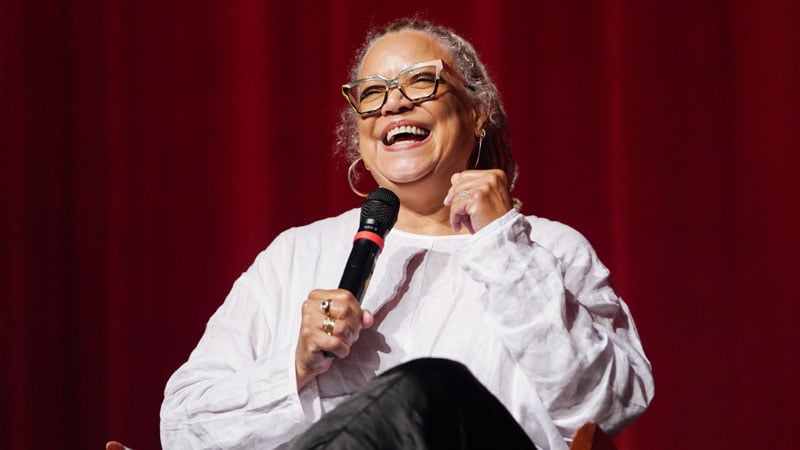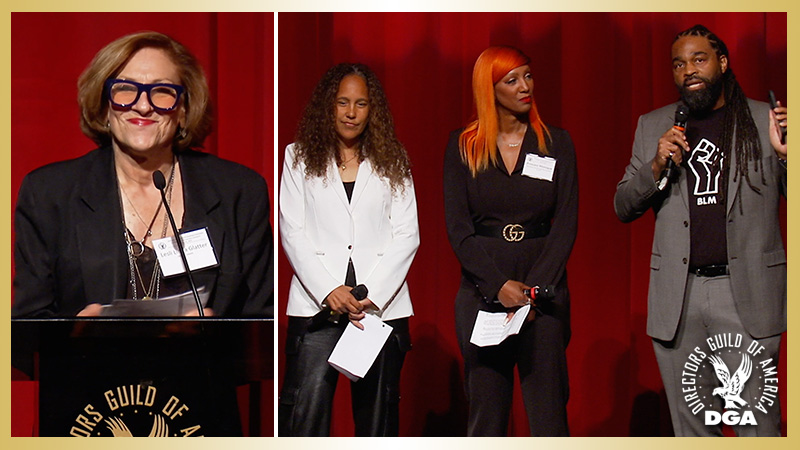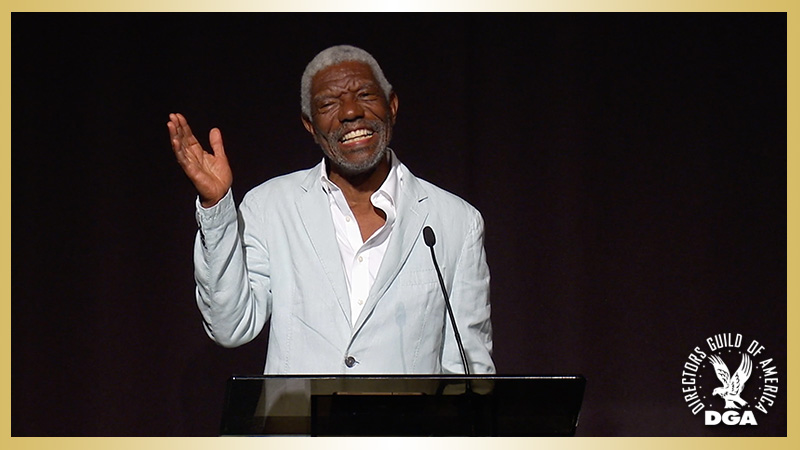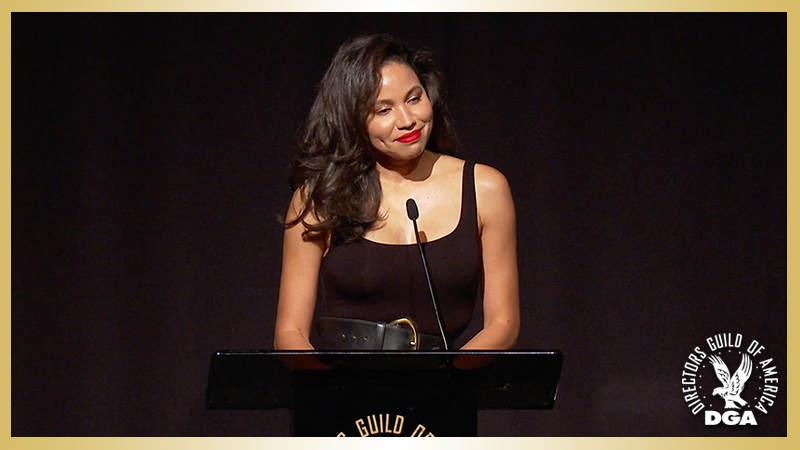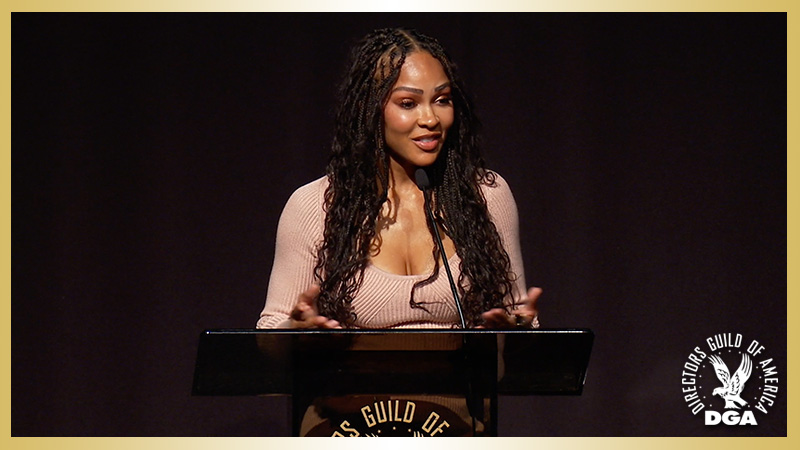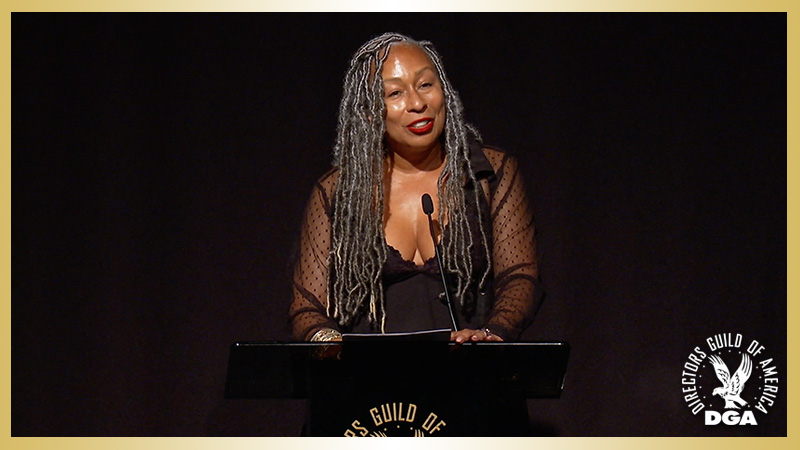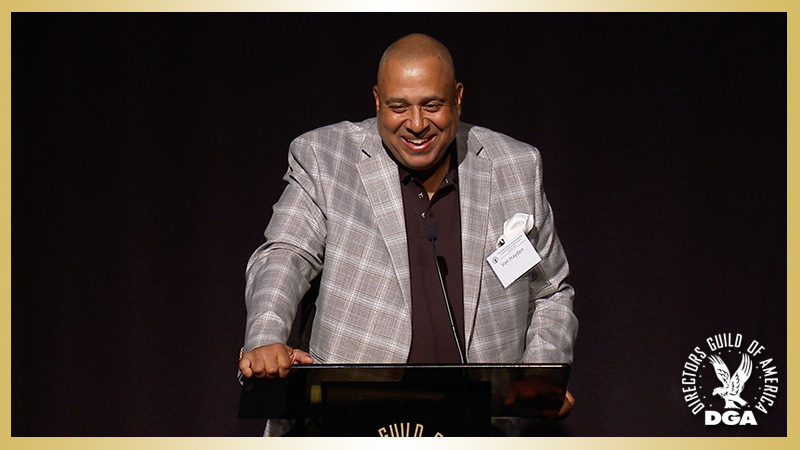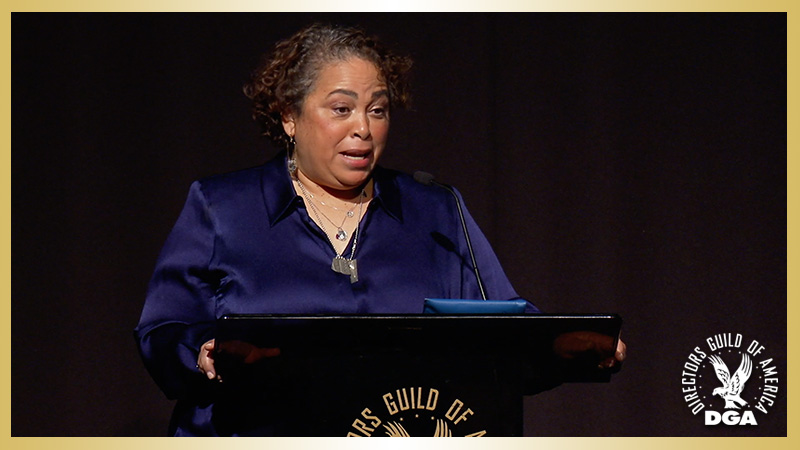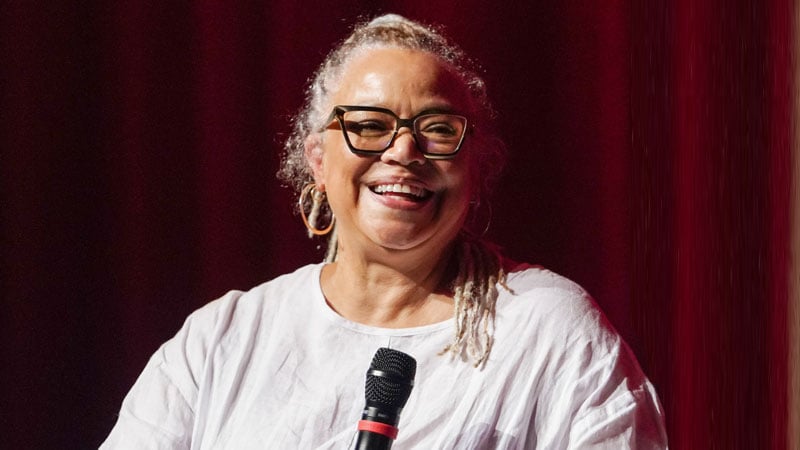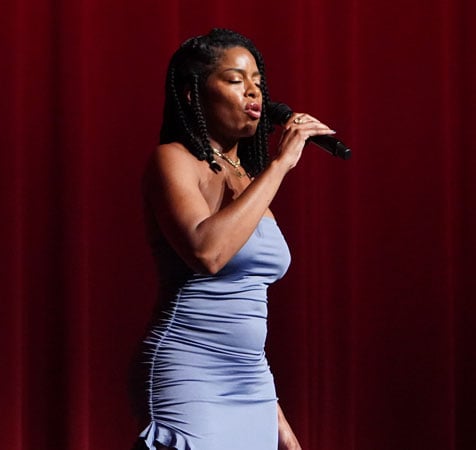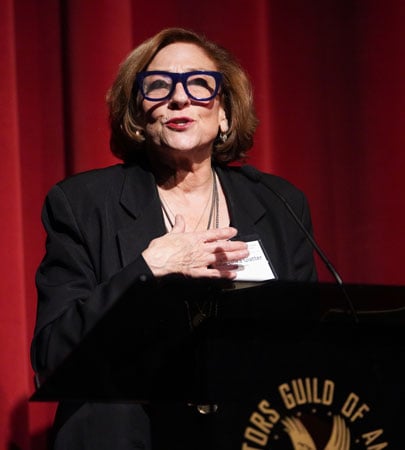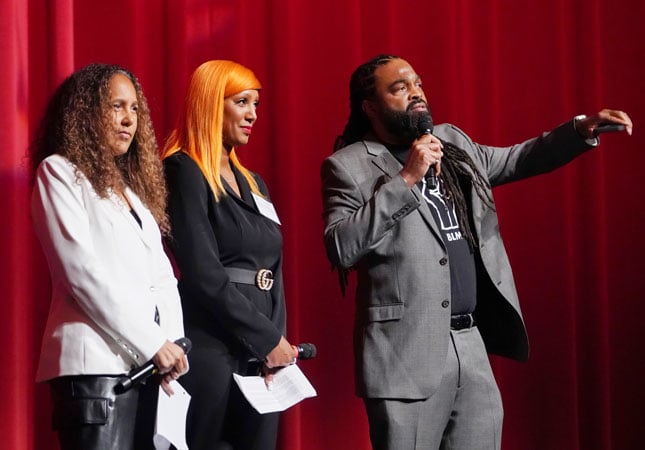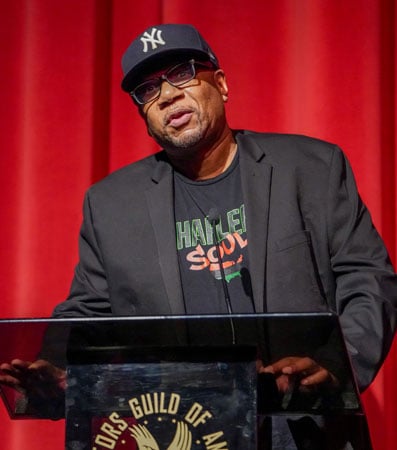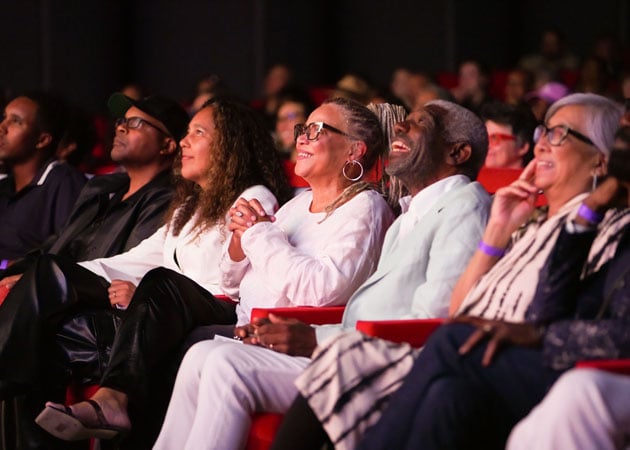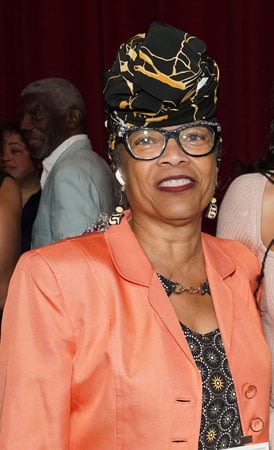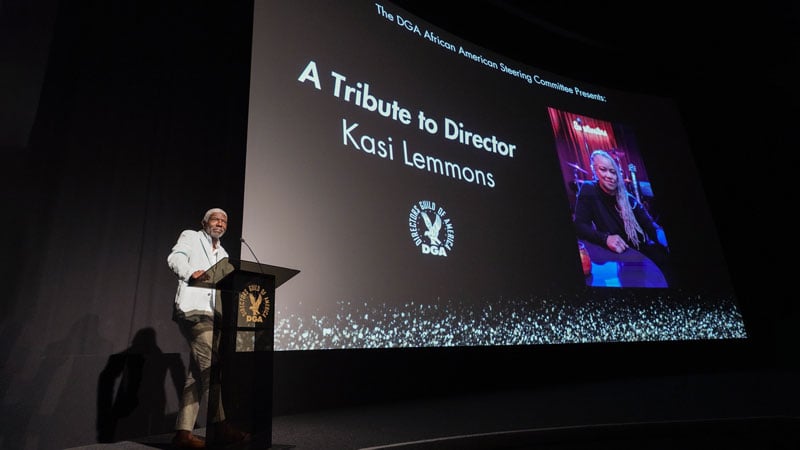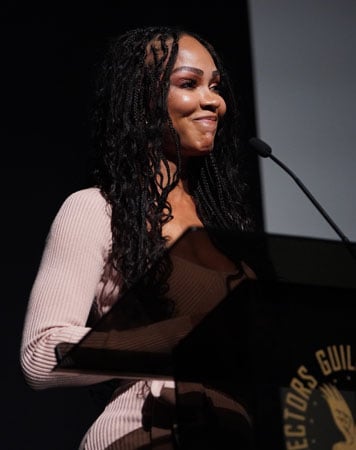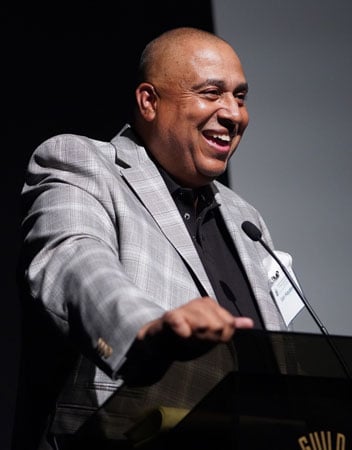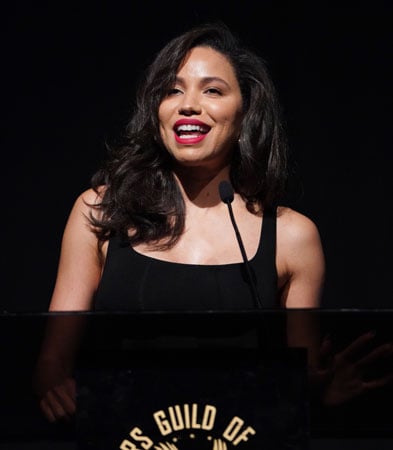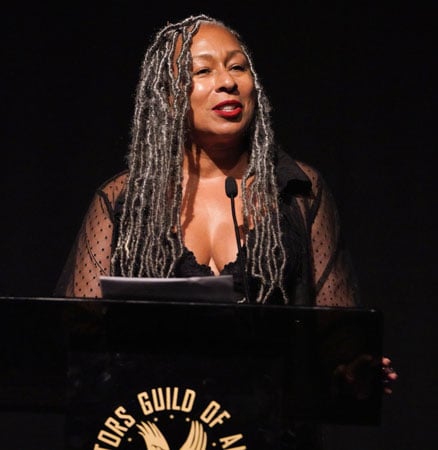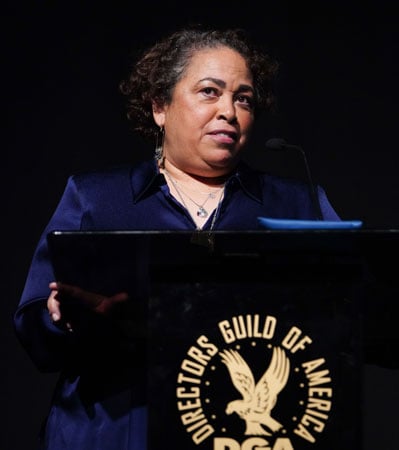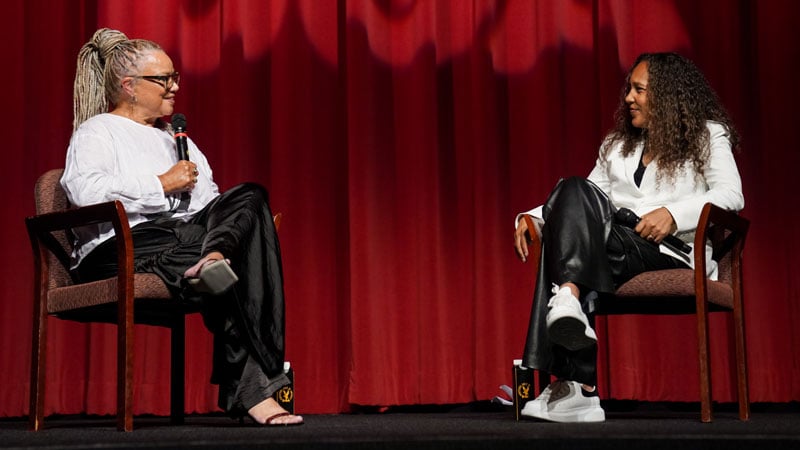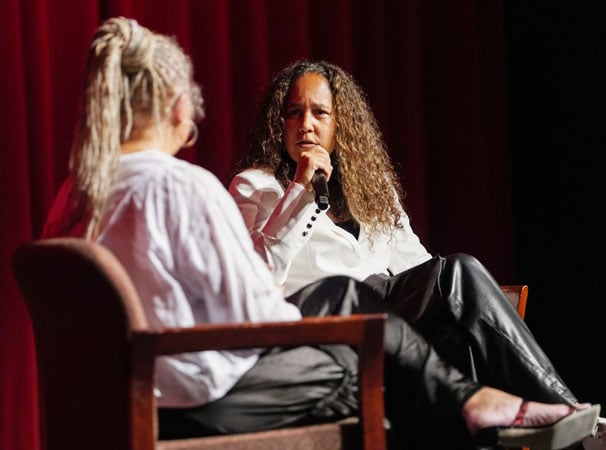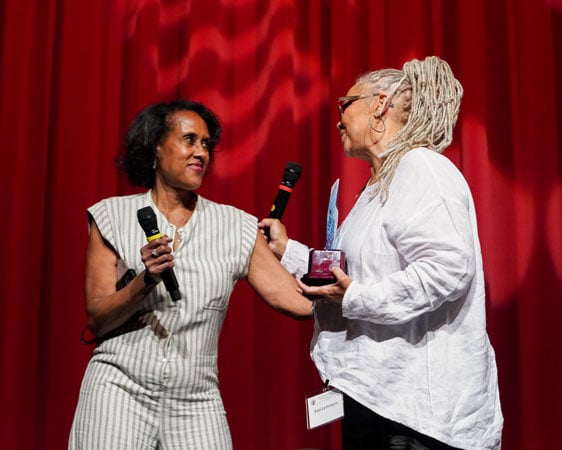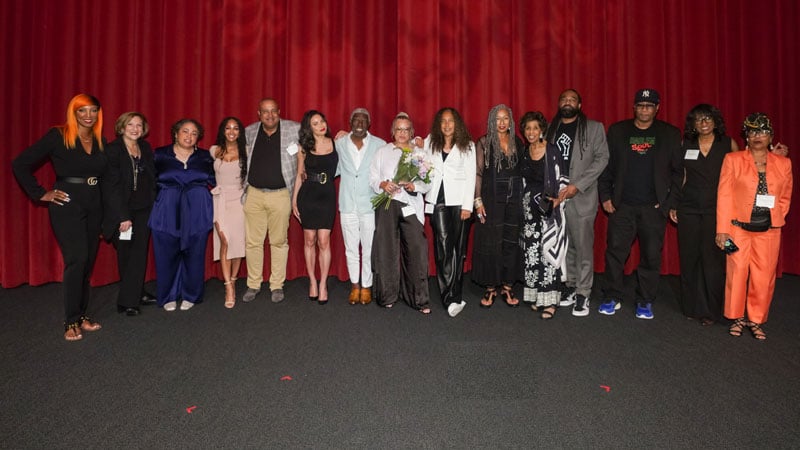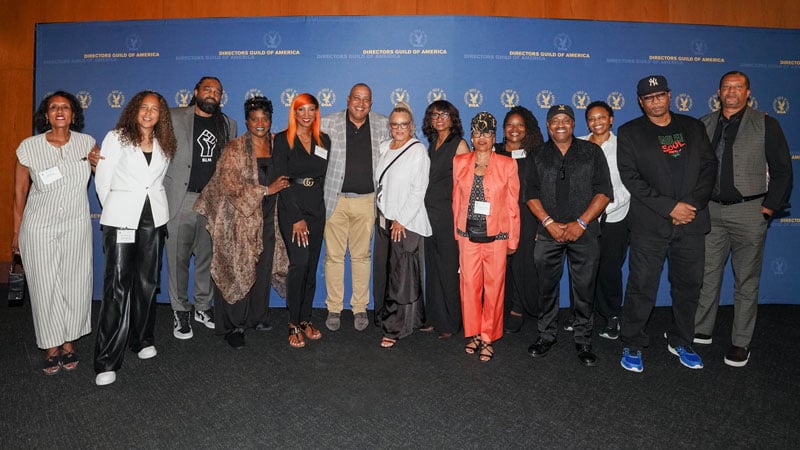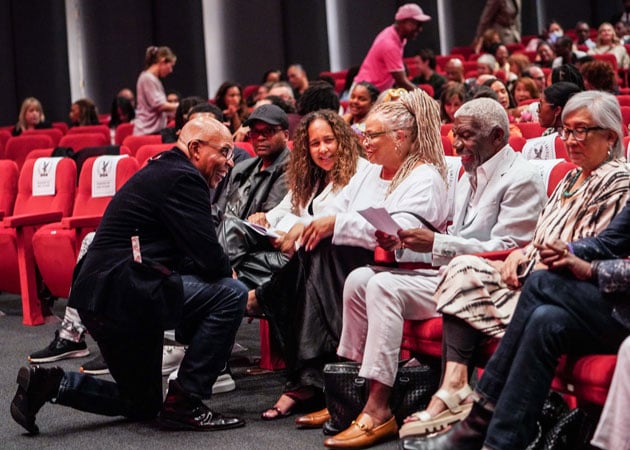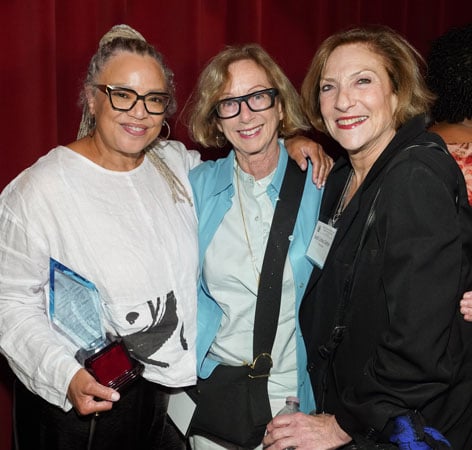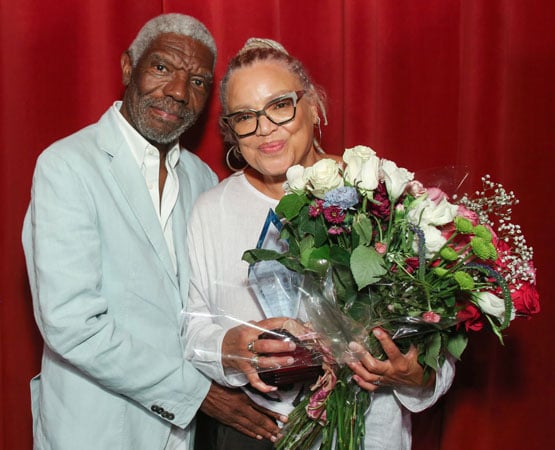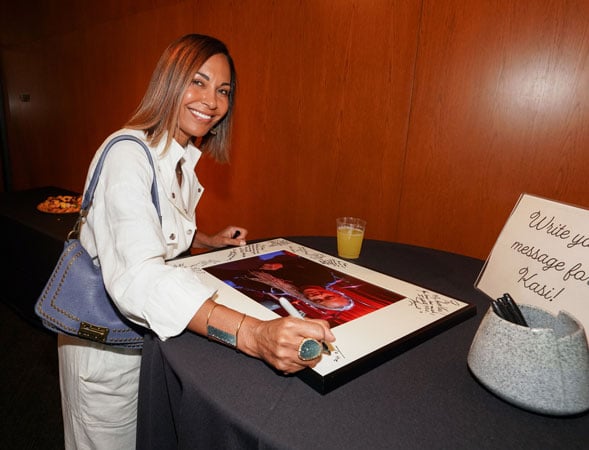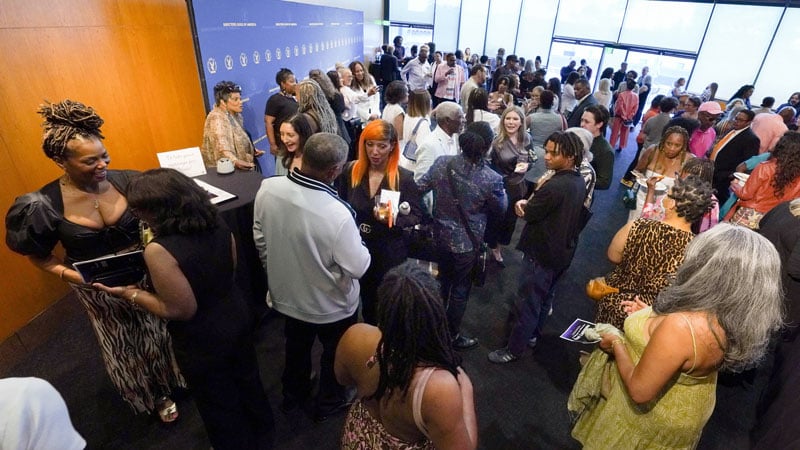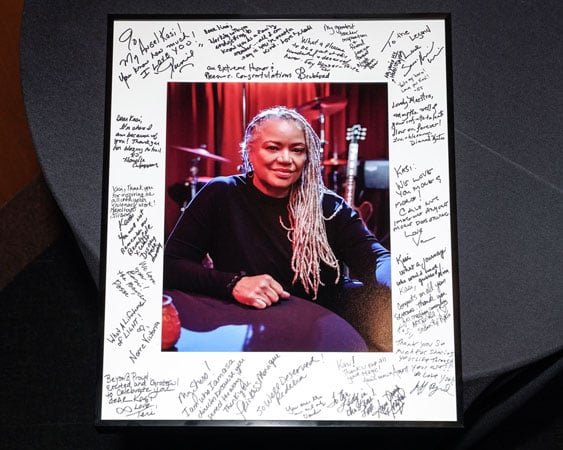photos by Howard Wise
On July 29, the DGA’s African American Steering Committee (AASC) presented a special evening in honor of Director Kasi Lemmons. The event celebrated the versatile Director, Actor, Writer, Producer, Librettist, Mentor and Educator in an insightful evening with individuals who have worked with Lemmons and have been influenced by her work.
After the audience of DGA members and guests settled into DGA Theater One, the evening began with a performance of “The Black National Anthem” by Actor/Singer Dionne Gipson. After the performance, DGA President Lesli Linka Glatter welcomed the attendees and spoke about the integral role the AASC has played in the in the Guild and why the Committee, on this occasion, opted to salute Lemmons.
“With a career spanning more than four decades, Kasi has embodied the very definition of an artist, a true Renaissance person,” said Glatter. “She is a Director, Actor, Writer, Producer, Librettist, Mentor and Educator. There are so many people here tonight waiting to come up and share just why Kasi is the perfect addition to this legacy of ingenious minds and storytellers.”
AASC Co-Chairs Jeffrey W. Byrd, Princess Monique and Gina Prince-Bythewood then took the stage to salute Lemmons and speak about the Committee’s ongoing mission to address the specific needs of the African American members of the Guild and present events celebrating their achievements.
Following the Co-Chairs’ remarks, the audience viewed a retrospective reel about Lemmon’s work, directed and introduced by AASC Director Category Representative/Activities & Events Subcommittee Co-Chair Abdul Malik Abbott. Narrated by Director Anna Maria Horsford, the video featured an interview with Lemmons conducted by Director Dianah Wynter. The retrospective reel was followed by video tributes from colleagues and collaborators who were unable to attend including Director Julie Dash, Actors Naomi Ackie, Don Cheadle, Cynthia Erivo, Debbie Morgan, Stanley Tucci, Lynn Whitfield and Lemmons’ long-time collaborator, Composer Terence Blanchard.
From the booth, Director Fay Hauser-Price introduced the special guest speakers queuing up to speak about working with Lemmons, which included: Director/Actor Meagan Good (Eve’s Bayou), 1st AD Van Hayden (Whitney Houston: I Wanna Dance with Somebody), Editor Terilyn A. Shropshire (Black Nativity) and Actors Jurnee Smollett (Eve’s Bayou) and Tamara Tunie (The Caveman’s Valentine) and Lemmons’ spouse, Director/Actor Vondie Curtis-Hall (Harriet).
After an introduction by Co-Chair Monique, Lemmons came onstage to engage in an introspective look at her career via a lively and entertaining conversation moderated by Co-Chair Prince-Bythewood. During the discussion Prince-Bythewood asked Lemmons to revisit all her films in chronological order and mention significant challenges and highlights for each production.
Recalling the filming of her historical biopic about abolitionist and social activist Harriet Tubman, Lemmons recalled the complications she had to overcome while filming a pivotal scene.
“Everyone on the set knew exactly why they were doing Harriet. You could ask anyone from the crew and they would tell you, ‘We are doing it for Harriet.’ It was a no-brainer. But, after three weeks of rain and woods at night — even grand hornets had stung — it was a very, very difficult shoot. We were shooting in the mud, and everyone was just in a foul mood. It got to a point where I had a very important shot to get — when Harriet is walking into freedom — and there was no way we were going to get it. But, I needed to get that shot so I called everyone. I said that I needed her (Actor Cynthia Erivo) in ten minutes, and I needed her at the top of the muddy hill and we’re going to get up there and we’re going to get that shot. The camera car got stuck in the mud. It was horrible but we go to the top of the hill and the sun started to break through, and then the sky broke, and then the most beautiful sunset you’ve ever seen and a double rainbow behind us. And then Harriet walked straight into freedom!”
After the discussion, Lemmons was presented with a commemorative gift from the Committee before everyone adjourned for a post-event reception in the DGA Lobby.
As a Director, Actor, Writer, Producer, Librettist, Mentor and Educator, Lemmons is one of the most powerful voices of our time. Her first feature, Eve’s Bayou, was selected for preservation in the Library of Congress’s National Film Registry in 2017. Her extensive directorial career includes the feature film credits, The Caveman’s Valentine, Talk to Me, Black Nativity, Harriet and Whitney Houston: I Wanna Dance with Somebody. Her films have earned numerous nominations and awards, including a NAACP Image Award, two Academy Award nominations, an Independent Spirit Award, a National Board of Review Award and a Palm Springs International Film Fest Award. She has also directed episodes of series including Women of the Movement, Luke Cage, Shots Fired; and the mini-series, Self Made: Inspired by the Life of Madam C.J. Walker. Her first libretto, the Grammy Award-nominated Fire Shut Up in My Bones composed by Terence Blanchard, opened The Metropolitan Opera’s ‘21-’22 season, and was the first opera by an African American Composer and Librettist ever performed at The Met. Lemmons is also an Arts Professor in the Graduate Film Department at NYU’s Tisch School of the Arts.
A DGA member since 2000, Lemmons joins an esteemed group of leading African American Directors previously honored by the AASC including Debbie Allen, Maya Angelou, Paris Barclay, Lee Daniels, Ivan Dixon, Bill Duke, F. Gary Gray, Eric Laneuville, Stan Lathan, Gordon Parks, Sidney Poitier, Gina Prince-Bythewood, Richard Pryor, Michael Schultz, Oz Scott, Tim Story and Melvin Van Peebles.
See video from this event in the gallery below.
About the Committee:
The African American Steering Committee (AASC) was born of a desire to address the specific needs of the African-American members of the Directors Guild. One of the primary goals of the Committee is to establish a productive line of communication between African-American members and the creative community. The Committee meets monthly to plan events throughout the year celebrating the achievements of African-Americans, as well as forums with industry executives to proactively address what can be done to hire more African-Americans.
